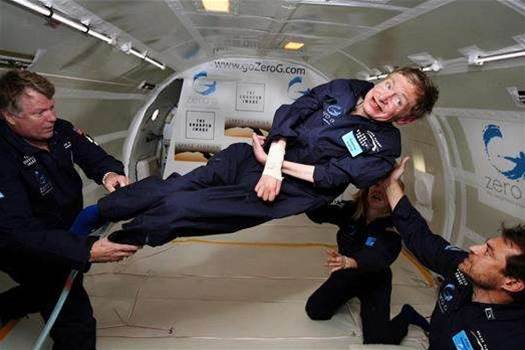
Most galaxies in the universe have at least one thing in common: supermassive black holes tend to sit in their centers, silently gorging on interstellar gas and dust and obliterating anything that comes within range of their event horizon. But scientists know very little about the origin of these behemoths or how they got to be so supermassive.

Earlier this month, scientists announced the first official discovery of the gravitational waves that Einstein predicted 100 years ago. The ripples in space-time emanated from the massive collision of two black holes 1.3 billion light-years away from us. Now, observations from the Fermi Space Telescope could tell us more about the nature of those black holes.


At the center of any massive galaxy, you'll most likely find one daunting portion of space-time: a supermassive black hole. These gigantic gravity wells are so gigantic, they have a mass that's equal to millions or even billions of times the mass of our Sun. While extremely powerful, black holes can be relatively hard to study. But now researchers have accurately measured a substantial byproduct of supermassive black holes: winds that travel at more than 62,000 miles per second.

Stephen Hawking has a big announcement.No, it's not that aliens exist or that humans won't survive another 1,000 years on Earth. The physicist claims, in a paper posted online Wednesday, that the idea of an event horizon—the point of no return at a black hole—conflicts with quantum theory. With no event horizons, there are no black holes, according to Hawking.


Internships more often than not are mindless, coffee-fetching black holes of boredom. But not at Syyn Labs, a Los Angeles collective that creates unusual interactive art and science projects for commercials and music videos. Last summer, student interns Hoon Oh, Robb Godshaw and Jisu Choi took it upon themselves to reinvent the sport of table tennis. Their project could pass for an extra in Transformers: It's part ping-pong table, part machine, and so difficult to play that it reduces pros to the level of rank amateurs.

EDITOR'S PICKS














